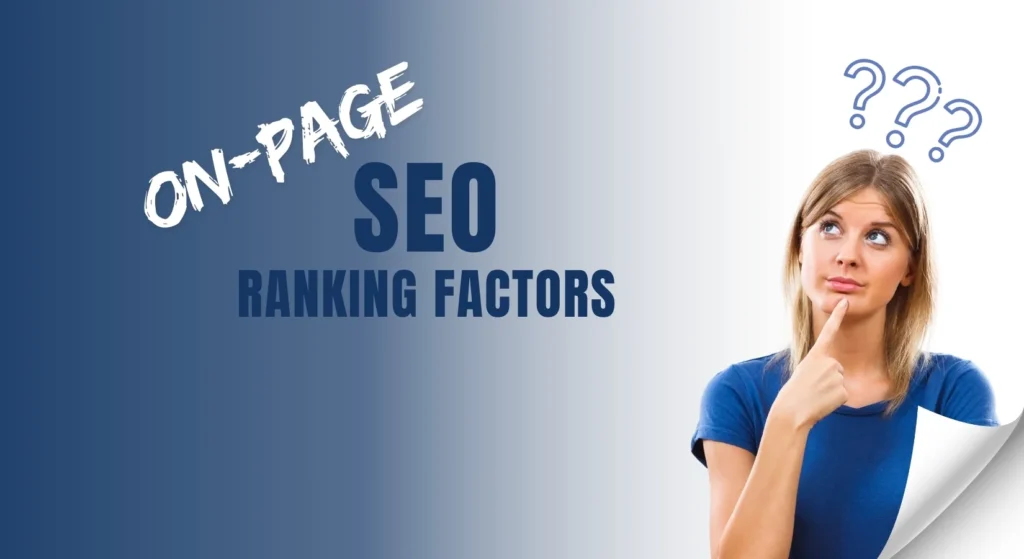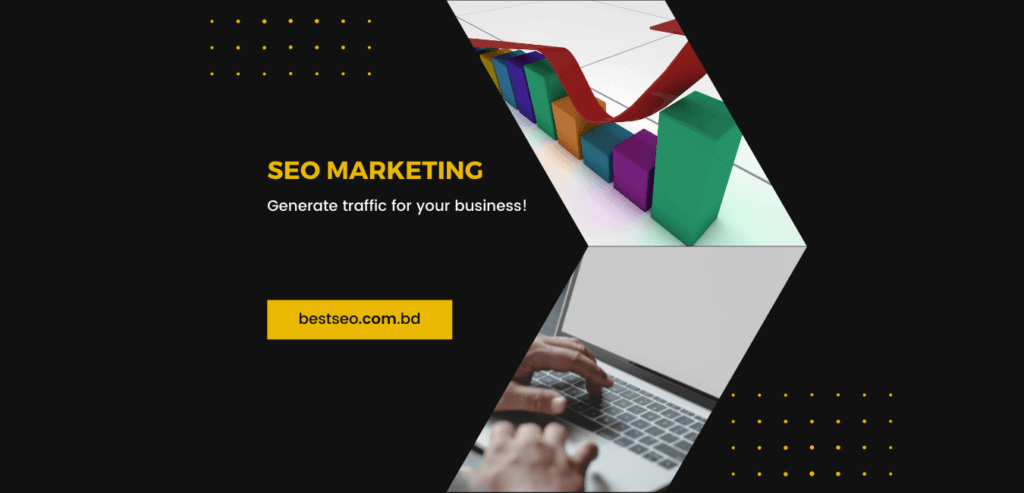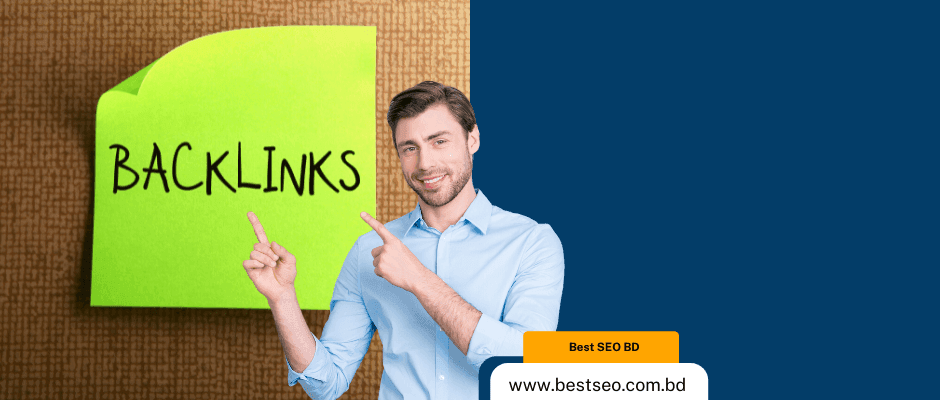Search engine optimization (SEO) is an ever-evolving field, with search engines like Google continuously updating their algorithms to provide users with the most relevant and high-quality content. On-page SEO, which involves optimizing individual web pages to rank higher and earn more relevant traffic, remains a critical aspect of any successful SEO strategy. As we move into 2024, understanding the key on-page SEO ranking factors is essential for staying ahead in the competitive digital landscape. This article will explore the most important on-page SEO ranking factors for 2024. You can also expect actionable insights to help you optimize your website effectively.
1. Content Quality and Relevance
Importance of High-Quality Content
SEO Ranking factors include content quality as the most significant on-page SEO factor in 2024. Search engines prioritize content that is informative, well-researched, and relevant to the user’s query. High-quality content not only improves your rankings but also enhances user engagement, reduces bounce rates, and increases the likelihood of earning backlinks.
E-A-T: Expertise, Authoritativeness, Trustworthiness
Google’s E-A-T guidelines, which emphasize expertise, authoritativeness, and trustworthiness, play a crucial role in determining content quality. In 2024, it’s more important than ever to establish your website as an authoritative source in your niche. This can be achieved by creating content that demonstrates your expertise, sourcing information from credible authorities, and building trust with your audience.
User Intent and Search Relevance
Understanding and aligning your content with user intent is a vital aspect of on-page SEO. In 2024, search engines are increasingly focused on delivering results that match the user’s search intent, whether it’s informational, navigational, transactional, or commercial. To optimize for user intent, ensure that your content directly addresses the specific needs and queries of your target audience.
2. Keyword Optimization and SEO Ranking
Targeting the Right Keywords
Keyword optimization remains a fundamental on-page SEO strategy. However, in 2024, the focus has shifted from simple keyword placement to understanding keyword intent and using long-tail keywords that match user queries more precisely. Researching and targeting the right keywords, including those with low competition and high relevance to your content, is essential for improving your rankings.
Semantic SEO and Latent Semantic Indexing (LSI)
Semantic SEO involves optimizing your content for the broader context of a keyword, rather than just focusing on the exact match keyword itself. Latent Semantic Indexing (LSI) keywords, which are terms and phrases related to your primary keyword, help search engines understand the context and meaning of your content. Incorporating LSI keywords naturally within your content can improve your on-page SEO and enhance your chances of ranking for related search queries.
3. Page Speed and Mobile Optimization
Importance of Page Speed for SEO Ranking
Page speed is a critical on-page SEO factor in 2024. Users expect websites to load quickly, and search engines reward fast-loading pages with higher rankings. Google’s Core Web Vitals, which measure key aspects of page speed, interactivity, and visual stability, are now essential components of its ranking algorithm. To improve page speed, consider optimizing images, leveraging browser caching, and minimizing code.
Mobile-First Indexing
With the majority of web traffic coming from mobile devices, Google has adopted mobile-first indexing, meaning it primarily uses the mobile version of your site for ranking and indexing. Ensuring that your website is fully optimized for mobile devices is crucial in 2024. This includes using responsive design, improving mobile page speed, and ensuring that all content is easily accessible on smaller screens.
4. URL Structure and Internal Linking for SEO Ranking
SEO-Friendly URL Structure
An SEO-friendly URL structure helps search engines understand the content of your pages and improves user experience. In 2024, URLs should be concise, descriptive, and include relevant keywords. Avoid using long, complex URLs with unnecessary parameters. A clear and logical URL structure not only enhances your on-page SEO but also makes it easier for users to navigate your site.
The Role of Internal Linking
Internal linking is an effective on-page SEO strategy that helps distribute link equity across your website and guides search engines in understanding the hierarchy of your content. In 2024, it’s important to strategically place internal links within your content to related pages on your site. This not only improves the discoverability of your content but also encourages users to spend more time on your site, reducing bounce rates and enhancing overall SEO performance.
5. Meta Tags and Headings
Optimizing Meta Titles and Descriptions
Meta tags, including meta titles and descriptions, play a significant role in on-page SEO. The meta title is one of the first elements search engines and users see, making it crucial for driving clicks and improving rankings. In 2024, meta titles should be compelling, include your target keyword, and be within the optimal length (typically 50-60 characters). Meta descriptions, while not a direct ranking factor, influence click-through rates and should provide a concise summary of the page’s content, including a call to action.
Using Headings for Structure and SEO
Headings (H1, H2, H3, etc.) are essential for organizing your content and improving readability. In 2024, using headings strategically can enhance both user experience and SEO. The H1 tag should include your primary keyword and clearly reflect the content of the page. Subheadings (H2, H3) should be used to break up the content into logical sections, making it easier for both users and search engines to navigate your content.
6. Image Optimization and Accessibility
Importance of Image Optimization
Images enhance the visual appeal of your content, but they also need to be optimized for SEO. In 2024, image optimization involves reducing file sizes to improve page speed, using descriptive file names, and including alt text that accurately describes the image. Alt text not only improves SEO but also ensures that your content is accessible to users with disabilities, aligning with best practices for web accessibility.
Implementing Schema Markup
Schema markup, a form of structured data, helps search engines understand the content of your web pages and can enhance your listings in search engine results pages (SERPs). By implementing schema markup, you can improve your chances of earning rich snippets, which can increase visibility and click-through rates. In 2024, using schema markup for elements such as reviews, FAQs, and events can give your content a competitive edge.
On-page SEO Ranking in a nutshell:
On-page SEO is an integral part of any successful digital marketing strategy, and staying updated with the latest ranking factors is essential for maintaining and improving your website’s visibility in search engine results. In 2024, the focus on content quality, user experience, and technical optimization will continue to shape the SEO landscape. By implementing the on-page SEO strategies discussed in this article, you can enhance your website’s performance, drive more organic traffic, and achieve better rankings.
FAQ: On-Page SEO Ranking Factors in 2024
1. What is on-page SEO?
On-page SEO refers to the practice of optimizing individual web pages to improve their rankings in search engine results. This includes optimizing content, meta tags, images, URLs, and internal links, among other factors.
2. How important is content quality for on-page SEO in 2024?
Content quality is the most critical on-page SEO factor. High-quality, relevant content that aligns with user intent is essential for ranking well in search engines. Google’s E-A-T guidelines (Expertise, Authoritativeness, Trustworthiness) emphasize the importance of providing valuable and credible content.
3. What role does page speed play in on-page SEO?
Page speed is a vital ranking factor in 2024. Fast-loading pages improve user experience and are favored by search engines. Optimizing page speed through techniques like image compression and code minimization is crucial for on-page SEO success.
4. Why is mobile optimization important for SEO?
With Google’s mobile-first indexing, the mobile version of your site is the primary basis for ranking and indexing. Ensuring that your website is mobile-friendly, with responsive design and fast mobile page speed, is essential for maintaining strong SEO performance.
5. What are LSI keywords, and how do they impact SEO?
Latent Semantic Indexing (LSI) keywords are terms and phrases related to your primary keyword. They help search engines understand the context of your content and improve its relevance. Including LSI keywords in your content can enhance your chances of ranking for related queries.
6. How does internal linking benefit on-page SEO?
Internal linking helps distribute link equity across your website and improves the discoverability of your content. It also guides search engines in understanding the structure and hierarchy of your site, which can enhance your overall SEO performance.



